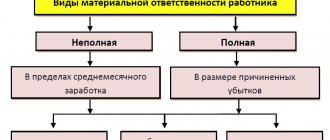Business partnerships in the Russian Federation are represented by several varieties, one of which is a general partnership. Its participants are assigned the role of full and equal comrades in it. They are responsible for the activities of the partnership before the law, both in monetary terms (capital) and in property. All participants have obligations that involve investing personal funds if the need arises due to changes in the state of affairs.
About the basics
A general partnership is created and operates on the basis of the Civil Code of the Russian Federation. This is a type of partnership (union) in which the participants, under the terms of an agreement, engage in joint business on behalf of the partnership.
What does it suggest? The defining moment assumes that a general partnership guarantees each person in it the presence of equal affirmative votes at meetings (other conditions specified in the agreement may be an exception) in this company, each member can familiarize himself with the documents of the business and partnership, as well as personal capital from the Federal Law.
How will proceeds be distributed among participants? If the created enterprise brings significant profit, then finances are distributed among the participants of the organization in accordance with documents that confirm everyone’s share in the joint capital (if other rules are not specified in the agreement, but comply with the Civil Code of the Russian Federation), while the company’s losses are distributed equally.
General partnership (page 1 of 2)
General partnership
General partnership
- a type of business partnership, the participants of which (general partners), in accordance with the agreement concluded between them, are engaged in entrepreneurial activities on behalf of the partnership and are liable for its obligations not only in the amount of contributions to the share capital, but with all the property belonging to them, that is, “full” , unlimited liability.
Number of participants
More than two. Participants in general partnerships can only be individual entrepreneurs and (or) commercial organizations.
Share capital
The minimum and maximum amount of share capital is not limited. This is due to the fact that the partners are liable for the obligations of the partnership with all their property.
Purpose of creation
A general partnership is created for the purpose of making a profit and can engage in any activity not prohibited by law. At the same time, for certain types of activities it is necessary to obtain a special permit (license).
Controls
Management of the activities of a general partnership is carried out by general agreement of all participants. The founding agreement of a partnership may provide for cases when a decision is made by a majority vote of the participants. Each participant in a general partnership has one vote, unless the constituent agreement provides for a different procedure for determining the number of votes of its participants. Each participant in the partnership, regardless of whether he is authorized to conduct the affairs of the partnership, has the right to familiarize himself with all documentation on the conduct of affairs. Waiver of this right or its limitation, including by agreement of the participants of the partnership, is void.
Each participant in a general partnership has the right to act on behalf of the partnership, unless the constituent agreement establishes that all its participants conduct business jointly, or the conduct of business is entrusted to individual participants. When conducting the affairs of a partnership jointly by its participants, the consent of all participants of the partnership is required for each transaction.
If the management of the affairs of a partnership is entrusted by its participants to one or some of them, the remaining participants, in order to carry out transactions on behalf of the partnership, must have a power of attorney from the participant (participants) who is entrusted with the management of the affairs of the partnership.
In relations with third parties, the partnership does not have the right to refer to the provisions of the constituent agreement that limit the powers of the partnership participants, except in cases where the partnership proves that the third party at the time of the transaction knew or should have known that the participant of the partnership did not have the right to act on behalf of the partnership
Responsibility of the General Partnership
The partnership is liable for its obligations with all its property. If the company's property is insufficient, the creditor has the right to make a claim against any of the company's participants or all of them at once to fulfill the obligation.
A participant in a general partnership who is not its founder is liable equally with other participants for obligations that arose before his entry into the partnership. A participant who has left the partnership is liable for the obligations of the partnership that arose before the moment of his withdrawal, equally with the remaining participants, for two years from the date of approval of the report on the activities of the partnership for the year in which he left the partnership.
Constituent documents
The constituent document of the Full Partnership is the constituent agreement signed by all founders. The memorandum of association must contain the following information:
- name of the partnership;
- location of the partnership;
- information on the size and composition of the share capital;
- on the size, composition, timing and procedure for making contributions by participants;
- liability of participants for violation of the obligation to make contributions.
In the constituent agreement, the founders undertake to create a legal entity, determine the procedure for joint activities for its creation, the conditions for transferring their property to it and participation in its activities. The agreement also determines the conditions and procedure for distributing profits and losses between participants, managing the activities of a legal entity, and the withdrawal of founders (participants) from its composition.
Conversion of a general partnership
A general partnership may, by decision of the general meeting of participants, be transformed into a limited partnership, a limited liability company, or a joint stock company, in the manner prescribed by law.
Rights and obligations of participants
A participant in a general partnership has the right to:
- participate in the management of the affairs of the partnership in the manner established by the Law and the founding agreement of the partnership;
- receive information about the activities of the partnership and get acquainted with its accounting books and other documentation in the manner established by its constituent documents;
- take part in the distribution of profits;
- withdraw from the partnership at any time, regardless of the consent of its other participants;
- receive, in the event of liquidation of the partnership, part of the property remaining after settlements with creditors, or its value.
The constituent agreement may also provide for other rights (additional rights) belonging to a member of the company.
A participant in a general partnership is obliged to:
- participate in the activities of the partnership in accordance with the terms of the constituent agreement;
- make contributions in the manner, in amounts, in composition and within the time limits provided for by the Law and the founding agreement of the partnership;
- not to disclose confidential information about the activities of the partnership;
- refrain from making transactions in one’s own interests (or in the interests of third parties) and on one’s own behalf that are similar to those that constitute the subject of the partnership’s activities, without the consent of the other members of the partnership.
The foundation agreement may also provide for other obligations assigned to a participant in the partnership.
The procedure for distribution of profits in a general partnership
The profits and losses of a general partnership are distributed among its participants in proportion to their shares in the share capital, unless otherwise provided by the constituent agreement or other agreement of the participants. An agreement to exclude any of the partnership participants from participating in profits or losses is not permitted.
If, as a result of losses incurred by the partnership, the value of its net assets becomes less than the amount of its share capital, the profit received by the partnership is not distributed among the participants until the value of the net assets exceeds the size of the share capital.
Peculiarities
A general partnership is one of the rare forms of doing business. It is due to the fact that when using this form of doing business, a very high level of trust between the participants is required. At the same time, in the West, the same or similar organizational and legal forms are more developed. Apparently, a longer period of market relations has taught us to take a more responsible approach to our responsibilities, our partners, and to trust them.
Limited partnership (limited partnership)
Partnership of Faith
(limited partnership) is a commercial organization based on share capital, in which there are two categories of members: general partners and limited investors. General partners carry out entrepreneurial activities on behalf of the partnership and are liable for the obligations of the partnership with all their property. Limited depositors are responsible only for their contribution.
Number of participants
More than two. Full participants (i.e. participants carrying out business activities on behalf of the partnership and being liable for the obligations of the partnership with their property) can only be individual entrepreneurs and (or) commercial organizations. There must also be one or more participants - investors (limited partners) who bear the risk of losses associated with the activities of the partnership, within the limits of the amounts of contributions made by them and do not take part in the partnership’s business activities.
Share capital
The minimum and maximum amount of share capital is not limited. This is due to the fact that general partners are liable for the obligations of the partnership with all their property.
Purposes of creation
A limited partnership is created for the purpose of making a profit and can engage in any activity not prohibited by law. At the same time, for certain types of activities it is necessary to obtain a special permit (license).
Controls
The management of the limited partnership is carried out by the general partners. The founding agreement of a partnership may provide for cases when a decision is made by a majority vote of the participants. Each general partner has one vote, unless the constituent agreement provides for a different procedure for determining the number of votes of its participants. Each general partner, regardless of whether he is authorized to conduct the affairs of the partnership, has the right to familiarize himself with all documentation on the conduct of affairs. Waiver of this right or its limitation, including by agreement of the participants of the partnership, is void.
Each general partner has the right to act on behalf of the partnership, unless the constituent agreement stipulates that all general partners conduct business jointly, or the conduct of business is entrusted to individual participants. When the affairs of a partnership are jointly conducted by its general partners, the consent of all participants in the partnership is required for each transaction.
If the management of the affairs of a partnership is entrusted by its participants to one or some of them, the remaining participants, in order to carry out transactions on behalf of the partnership, must have a power of attorney from the participant (participants) who is entrusted with the management of the affairs of the partnership.
All aspects of the establishment process
The creation of such an area of business activity implies the signing of a constituent agreement by citizens participating in it, including the common capital. This document must be drawn up in accordance with the requirements contained in Article 52 of the Civil Code of the Russian Federation, including the Federal Law. In order to establish a partnership, a share capital is formed, which is considered as an analogue of the authorized capital. The need for its formation arises in the case of registration of a JSC or LLC for the Federal Law. However, the legislation of the Russian Federation does not establish the amount of the minimum capital for pooling, as well as the number of participants in the Federal Law, who are equal in rights and can make decisions.
Share capital and memorandum of association
There is no need for a Charter, which distinguishes it from an open company or a joint stock company, and this is stipulated in the Civil Code of the Russian Federation. It is important to note that an organization of this type is formed and acts as a business institution on the basis of an agreement and documents, which are assigned the role of the only legal definition through which a business is registered with documents of this type.
The constituent or main agreement regulating financial activities is the basis for registering the share in the share (total) capital of each individual participant. At the same time, it reflects the fixation of the position, specifics, characteristics and signs of running a joint business, important conditions according to which proceeds from profits are distributed, and also is a guarantor of the rights and obligations of the participants, possibly the capital of the Federal Law, which carry the constituent documents.
Reasons for leaving
A downward change in the composition of participants in a general partnership does not depend on voluntary refusal or forced exclusion. The Civil Code contains a list of reasons according to which a share owner is removed from the enterprise team:
- The death of a comrade.
- Recognition of the participant as insolvent.
- Complete or partial loss of legal capacity.
- Recognition of the share owner as missing.
- The court makes a decision to begin the reorganization of a partner.
- Liquidation – applies to legal entities.
- The demand of a creditor of a partner to impose a penalty on property corresponding to his share of participation in the joint capital.
The departure of a member of an organization upon death provides for the entry of his heir into the enterprise only with the consent of the remaining share owners. If the heir has not expressed a desire to become a participant, he is paid the corresponding part of the value of the property, commensurate with the share due to the withdrawing partner.
Along with the right to payment of material resources, the heir is forced to answer for obligations to third parties together with other members of the enterprise within the framework of shared participation. Based on the conclusion for these reasons, the further activity of the enterprise depends on two factors:
- the number of general partnership participants remaining in the team (must exceed one);
- adoption of a decision by the remaining owners to continue business activities, prescribed in the constituent documents.
A general partnership is subject to liquidation in the absence of at least one of the above factors. The procedure takes place with the participation of the court.
Basics of conducting business activities of a general partnership
The division of capital, the owner of which is considered to be a general partnership, is carried out within the limits of the proportions (comparative table) determined, as noted above, in the constituent agreement adopted unanimously. Typically, the proportions that were set at the level of share distribution subsequently determine the formula for dividing and personifying the proceeds from profits, as well as losses in the process of activity, if the authorized capital is sufficient. Although the clauses of the agreement may reflect other principles in accordance with the current legislation of the Russian Federation.
A general capital partnership, which is regulated by the constituent documents for the Federal Law, may actually be an organizational community, the members of which bear equal responsibility.
At least half of the obligations relating to the formation of a special financial fund are necessary for fulfillment by each of the participants at the time of official registration of the organization, and can be considered as an addition to the Civil Code for the Federal Law.
Forms of business partnerships. General partnership
Business partnerships are created in the form of a general partnership or limited partnership.
Article 66 of the Civil Code of the Russian Federation establishes common characteristics for business partnerships: a partnership is a commercial organization, the share capital of business partnerships is divided into contributions.
Article 69 of the Civil Code of the Russian Federation specifies the business general partnership in more detail:
- goal ─ engaging in entrepreneurial activity;
- participants act on behalf of the partnership in accordance with the constituent agreement concluded between them;
- Participants are liable for the obligations of the partnership with the property belonging to them.
These features of a business partnership are supplemented by Article 75 of the Civil Code of the Russian Federation, which establishes that everyone who is part of a full business partnership is jointly and severally liable for the obligations of the partnership.
[advertising]
Fines
Additional obligations can be fulfilled in terms strictly defined by the contract and in full compliance with the Civil Code of the Russian Federation. If one of the partners fails to contribute his own part of the total capital in a timely manner, he will have to pay penalty interest. However, business general partnerships can be established not only by individuals; individual organizations can also do this.
A typical example of such an agreement, which may include further clauses:
- official title of the organization;
- address of the location of the enterprise;
- partnership business management system, including federal laws;
- circumstances according to the constituent documents affecting the amounts and structures of the organization’s finances, fixed capital;
- information on the size and methods of modifying the shares of general partners in the financial condition of the organization;
- conditions reflecting the amount, composition, timing, as well as the procedure for making additional investments on the part of general partners and the structure of liability for refusal to execute combined orders;
- materials on the complex value of investment deposits in business.
From which it follows that the educational agreement must contain positions reflecting the fact that the participating partners undertake to register the enterprise, in accordance with the Civil Code of the Russian Federation, as a legal entity, note the procedure and conditions for equal joint management of an economic or other business, and implement mandatory conditions on investments and delivery of property and obligations.
Please note that within the framework of this agreement, the conditions for the division of profits between partners are also fixed, as well as the conformity of future refusals by participants from the structure of the organization included in the constituent documents.
Concept and functions of the founding agreement of a general partnership
A general partnership is a type of partnership whose commercial activities are carried out on the basis of a constituent agreement between the participants of the partnership (full partners).
The agreement specifies all the features of the partnership’s activities and lists the property of the general partnership.
The partnership is engaged in entrepreneurial activities, and the general partners bear joint and subsidiary liability.
The partners are liable for their obligations with the property that belongs to them. For this reason, this form of organization of legal entities is practically not used.
The agreement is drawn up and signed by all participants of the partnership and is the basis for the creation of a legal entity.
The content of the agreement is regulated by Articles 52 and 70 of the Civil Code of the Russian Federation.
According to Article 52, the constituent documents of legal entities must contain:
- Name of company;
- Data on the organizational and legal form of the legal entity;
- Registration address/metro;
- Procedure for managing a legal entity.
Article 70 makes clarifications regarding the constituent documentation of general partnerships:
- The size of the organization's capital;
- Composition of capital and procedure for making deposits;
- Features of distribution, size of shares of all participants;
- Features of making contributions by general partners;
- Responsibility and rights of general partners.
An integral element of the agreement is the obligation to create a partnership as a legal entity.
The constituent documentation may include data regarding the activities of the partnership, the rights and obligations of participants, clarifications that relate to the contribution of capital and other aspects of the activity and development of the legal entity.
The document that is concluded to establish a general partnership must demonstrate the conditions and procedure for transferring the property of general partners to a legal entity.
It is also required to indicate the specifics of the distribution of profits brought by the activities of the organization, the procedure for the withdrawal of participants from the partnership.
Powers of participants in a general partnership
Let us analyze what opportunities Russian human rights activities on the basis of the Civil Code of the Russian Federation provide for participants (colleagues) of a general partnership. Among the prevailing ones for the Federal Law:
- acquisition of income, which is calculated in direct proportion to the share in the total capital of the organization;
- accepting participation in the conduct of business and control over the affairs of the company;
- obtaining the necessary information about the results of the organization’s work, familiarization with accounting finances and other documents that are related to the life of the organization;
- taking part in the distribution of funds (capital), which constitutes basic financial management.
In addition, full partners retain the right to freely leave the company at any time.
Powers of participants in a general partnership
In turn, full comrades must be ready to fulfill a number of responsibilities. Among the main ones:
- be responsible for expenses that are directly proportional to the size of the shares in the share capital, which is recorded in the constituent documents;
- invest funds in the company in accordance with the Charter, defined in the general founding agreement, in the development and economic regulation of activities;
- maintain confidentiality regarding business processes and trade secrets.
- It is important to note that in most general partnerships, the developed and approved constituent agreement includes a provision that the partners of the organization do not have the right to make transactions on their own behalf and for personal purposes that repeat the essence of the business that is dominant for the company.
Let's review the specifics of combined business in companies with the corresponding legal titles for obligations.
What responsibility lies with the participants of the partnership and what do the constituent documents establish? Each member of the company is directly responsible for the circumstances with their property. If a new entrepreneur is introduced into the company, who is not yet a founder, he confirms that he is ready to take on part of the responsibility.
What is done if the property of a new member of the company does not allow him to pay off the debts of the partnership?
The founders are obliged to pay everything according to its circumstances at the expense of their property, taking into account the subsequent return of debts from the new participant in the company, or shares in the share capital.
Types of business partnerships
Civil legislation currently distinguishes 2 types of business partnerships: general partnership and limited partnership.
Article 66 “Basic provisions on business partnerships and companies” of the Civil Code of the Russian Federation establishes that business partnerships can be created in the organizational and legal form of a full partnership or a limited partnership (limited partnership).
Full partnership (simple)
A general partnership is a legal entity whose participants (general partners), in accordance with an agreement concluded between them, jointly engage in business activities and are liable for its obligations with the property belonging to them.
Only a few people can create a general partnership.
Management of the affairs of a general partnership is carried out by all its participants. Profits and losses of a general partnership are distributed among its participants in proportion to their shares in the share capital, unless otherwise provided by the constituent agreement.
In cases where one of the participants leaves the general partnership, the partnership continues its activities if this is provided for in the constituent agreement or agreement between the participants. Also, participants in a general partnership can demand the exclusion of one of the participants in court, but only for serious reasons.
A participant in a general partnership has the right to transfer his share in the share capital to another participant in the partnership or to a third party only with the consent of the partnership. The transfer of the entire share entails the termination of participation in the partnership.
A general partnership is liquidated upon the departure of all participants, when only 1 participant remains. He has the right to transfer the general partnership into a business company within 6 months.
[advertisement2]
Limited partnership (limited partnership)
A limited partnership is a legal entity in which, in addition to the participants carrying out business activities on behalf of the partnership and being liable for its obligations with their property, there are one or more contributors (limited partners) who bear the risk of losses within the limits of their contributions and do not accept participation in business activities on behalf of the partnership. The general partnership rules apply to limited partnerships.
The management of the affairs of the limited partnership is carried out by the general partners. Investors do not have the right to participate in the affairs of the partnership and challenge its decisions. The investor has the right to receive a portion of the profits from the affairs of the partnership, to get acquainted with the annual reports of the partnership, and to leave the partnership at the end of the financial year.
A limited partnership is liquidated in the event of the withdrawal of all investors, but general partners have the right to reorganize the limited partnership into a general partnership.
How to withdraw from a partnership?
Each of the individual participants of the partnership, in full compliance with the accepted documents and what the founding clauses of the agreement guarantee, can withdraw from the partnership if they write a statement corresponding to the accepted obligations. The Civil Code of the Russian Federation regulates this provision and there is a set period during which it is necessary to notify other participants of the intention - this is no less than 6 months according to the constituent agreements. True, respectful signs and positive characteristics may influence the decision to withdraw a participant from the membership of the partnership ahead of schedule.
Participants who have decided to leave the partnership, as a one-time option, are paid a share of property under the obligations of the company, which are regulated by the constituent documents, including fixed capital, proportional (a special table with established ratios is used) to that established in each individual specific condition for obligations in relation to the common capital, unless the agreement includes other conditions.
How to make a payment?
Payment to Federal Law participants who have decided to leave the partnership, and in all conditions have signs of a voluntary decision, is made in monetary (cash) form (provided that the characteristics and general characteristics of the activity have an economic direction, payment can be made in kind) for all obligations. The amount of payments is determined in strict accordance with the Civil Code of the Russian Federation and according to balance sheet indicators (a comparative table must be presented) at the time of the exit of one of the participants from the business.
Accordingly, these are necessary signs for increasing the share of other participants in the partnership, the main founding one. Each individual founder has the right to transfer his own share not to the general fund, but to a specific participant, and under certain conditions and if the characteristics of the third party fully meet the requirements, then to him.
What are the advantages of being in a general partnership? In case of bankruptcy, the businessman will receive financial support from his colleagues for all obligations. Also, if you don’t have enough money to pay your share of the company’s debts, you will receive support from your colleagues.
What are the disadvantages of being in a general partnership? One of the disadvantages is disagreement between members of the enterprise, especially when there is a division, including capital. Another disadvantage is the risk of collapse due to bankruptcy of the entire enterprise.










